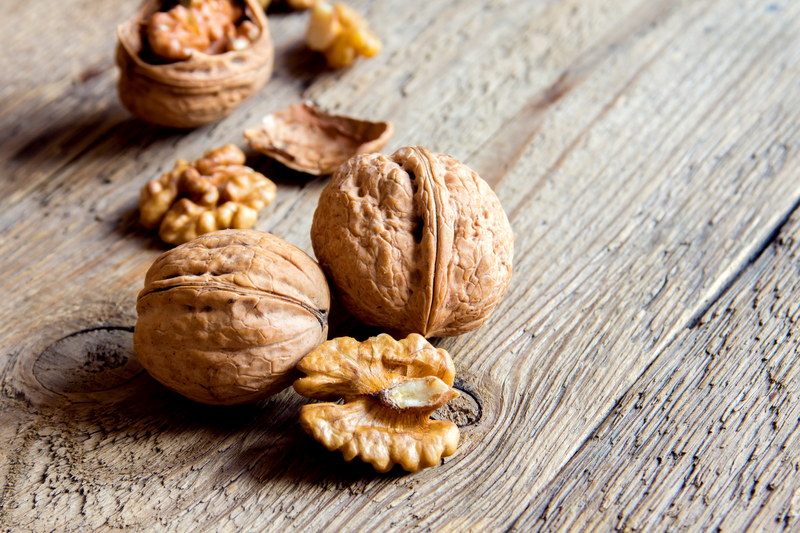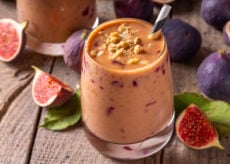11 Brain-Boosting Foods That Improve Focus & Memory

Let me ask you some questions… Do you struggle with lackluster or up-and-down energy levels? Do you feel like you are often trying to navigate through brain fog? Do you notice mood swings over the course of the day? Have you found your memory isn’t quite as sharp as it once was?
If you can relate to any of these, which I’m pretty sure you can, then one of the first few things we need to address is what you’re putting into your mouth. After all, you know what they say: you are what you eat. And, there’s no question that what you eat—or don’t eat—affects the gray matter between your ears.
I’ll be sharing some of my top brain-boosting foods below. But, it’s critical to point out that energy, mood, memory, cognition, attention, concentration, alertness, etc., come back to your entire body of nutrition work, not a single food or nutrient. Considering that oxidative stress, inflammation, glycemic variability, and mitochondrial dysfunction are four of the biggest threats to brain health and function, honing in on an anti-inflammatory diet and things to boost mitochondrial function would be wise.
Also, keep in mind that optimal brain function hinges on highly complex interactions between genetic and environmental factors. And while intake of brain-boosting foods is most certainly one them, we can’t ignore things like physical activity, age, and stress.1 Having said that, here are some of my top brain-boosting foods, which feature nutrients like:
- B vitamins (Folate, B6, B12)
- Vitamins D and E
- Choline
- Lutein and Zeaxanthin
- DHA
- Probiotics
- Flavonoids (such as Kaempferol)
11 Brain-Boosting Foods That Improve Focus & Memory
1. Fatty Fish. Did you know the human brain is 60% fat? It’s true, and the most abundant fat in the brain is the omega-3 fat DHA. DHA has been shown to improve things like memory and reaction time. The best dietary sources of DHA are fatty fish and seafood like wild salmon, Pacific sardines, mussels, Atlantic mackerel, oysters, anchovies, rainbow trout, and herring. Fish are also a great source of vitamins B6 and B12. These vitamins energize and protect the brain by helping eliminate potentially toxic compounds.2
2. Walnuts. They look like a brain…what more can I say? Seriously, walnuts are a good plant-based source of omega-3 fats (although not DHA) making them one of our top brain-boosting foods. They are also packed with antioxidants, including vitamin E (which may help combat dementia) and melatonin (which also helps with sleep). Research shows that walnut consumption is associated with better cognitive function. In general, tree nuts (particularly pecans, pistachios, walnuts, and hazelnuts) are packed with phytochemicals that yield antioxidant and anti-inflammatory properties.3 Not surprisingly, tree nut consumption is associated with better brain health and cognition, including attention and recall.4,5
3. Medium-Chain Triglycerides (MCTs). Caprylic acid (C8) and capric acid (C10) are referred to as MCTs because they have fewer carbons than most dietary fats. MCTs are unique because they are easily digested, rapidly absorbed, and quickly and efficiently burned for energy. In particular, C8 is readily converted to ketone bodies. These serve as a key, “preferential” energy source for the brain, promoting focus and cognitive function. The best dietary sources of MCTs are coconut oil, palm oil, butter, milk, yogurt, and cheese. But keep in mind that there are noteworthy differences between coconut oil and MCTs. To reap the brain-boosting benefits of MCTs, it’s probably best to use a supplement that’s especially concentrated in C8.
4. Eggs. Packed with healthy fats, antioxidants, vitamins, and minerals, eggs (particularly the yolks) are one of the best brain-boosting foods. Besides DHA and B vitamins, eggs also contain choline, the main building block of the neurotransmitter acetylcholine. Eggs are also rich in the antioxidants lutein and zeaxanthin, which combat oxidative stress and boost levels of a compound called BDNF that protects and enhances the brain.6 Eggs are also one of the few good dietary sources of vitamin D, which plays an intricate role in brain health and function. Research has shown a significant association between low levels of vitamin D and Alzheimer’s disease.1 And like fish, eggs are also a great source of the brain-boosting vitamins B6 and B12.
5. Coffee. As much as I talk about it, you’d think I own a coffee company. I wish! Alas, regular coffee consumption is associated with better brain health (perhaps due to its concentration of antioxidants).7 For most people, a cup of Joe can boost energy levels, increase focus, and enhance feelings of well-being. This is thanks at least in part to caffeine (which is also an antioxidant). Heck, the 2012 Nutritional Prevention of Cognitive Decline Congress has put coffee on a pedestal along with tea, B vitamins, omega-3s, and vitamin D as the most beneficial factors to slow the development of dementia and promote cognitive health and function.8
6. Green Tea. Along with coffee, let’s throw green tea into the ring of best brain-boosting foods. After all, green tea may help reduce anxiety, boost cognitive performance (including memory and attention), and improve brain function.9 The brain-boosting benefits of green tea are likely thanks to copious compounds, including l-theanine. This amino acid helps improve mood and alertness and works especially well with caffeine (also found in green tea). Green tea is also packed with flavonoids (such as kaempferol), which may offer noteworthy antioxidant and anti-inflammatory activity.
7. Blueberries. In the book The Brain Diet, Dr. Alan Logan refers to blueberries as the “WD40® of the nerve cells.”10 Research has shown that blueberries, which have powerful antioxidant and anti-inflammatory compounds (such as anthocyanins), can support cognitive function by improving communication between nerve cells. One study found folks who consumed blueberry juice daily experienced improved learning and memory as well as improved mood.11 The anthocyanins in blueberries and other fruits and vegetables (such as cherries, strawberries, plums, and red cabbage) actually enter the brain where they flex their cognitive-enhancing muscle. This makes blueberries a staple on the brain-boosting foods list.
8. Grapes. Along with red wine, grapes also contain those same brain-boosting anthocyanins found in berries. Of course, red and purple grapes also feature resveratrol, which is known for many health benefits. This includes improved memory, learning, cognitive function and performance, and even cerebral blood flow.12 Grapes are also a good source of the flavonoid kaempferol, which is at least in part responsible for the brain-boosting benefits of the well-known nootropic Ginkgo biloba.13
9. Broccoli. Commonly referred to as one of the “brain-boosting foods,” broccoli has several components that make it worthy of this description.14 For example, broccoli contains the powerful antioxidant alpha-lipoic acid, which is a key nutrient for mitochondrial health. Broccoli also contains a unique compound called sulforaphane (also found in other cruciferous vegetables), a potent antioxidant that activates a compound called Nrf2. Nrf2 is known as the “master regulator” of cell defense and detoxification.15 Broccoli also contains the aforementioned kaempferol. Not surprisingly, research has shown higher consumption of dark green vegetables and cruciferous vegetables is associated with better brain health and cognitive function.16,17
10. Fermented Foods. Foods like yogurt, kefir, and fermented fruits, vegetables, and other plant-based foods are most well-known for their probiotics (i.e., “good” bacteria). Along these lines, fermented foods can influence the makeup of the gut microbiota (community of bacteria in the digestive tract), which may have a direct influence on brain health and cognitive function (i.e., gut-brain axis). The fermentation process may also enhance the bioavailability of the brain-boosting nutrients in food. They may enhance the body’s stress response. And they may improve the balance of neurotransmitters (e.g., GABA, serotonin) and other brain-boosting compounds (e.g., BDNF). While not completely understood, it’s believed that fermented foods offer several neuroprotective effects, which support brain health and cognitive function.18
11. Legumes. Along with dark green vegetables (like broccoli and spinach), beans and lentils are among the best sources of the B vitamin folate, which is essential for cognitive function and brain health. Folate (along with B6 and B12) plays a key role in eliminating the potentially neurotoxic compound homocysteine (through a process called methylation). High levels of homocysteine are associated with both cognitive decline and poor brain health. Legumes are also a great source of dietary fiber, which has numerous health benefits. For instance, fiber tends to help improve glycemic control, and poor glycemic variability (which basically refers to fluctuations—up and down—of blood glucose) is a major risk factor for cognitive decline.19,20
11 Brain-Boosting Foods: A Recap
What you eat, and don’t eat, can have a tremendous impact on how you think and feel—today, tomorrow, and years from now. The above is a great foundation of brain-boosting foods and tools. Remember that food intake (all of it…not any single food) is only one piece of the brain health puzzle, and optimal brain function hinges on highly complex interactions between genetic and environmental factors.







